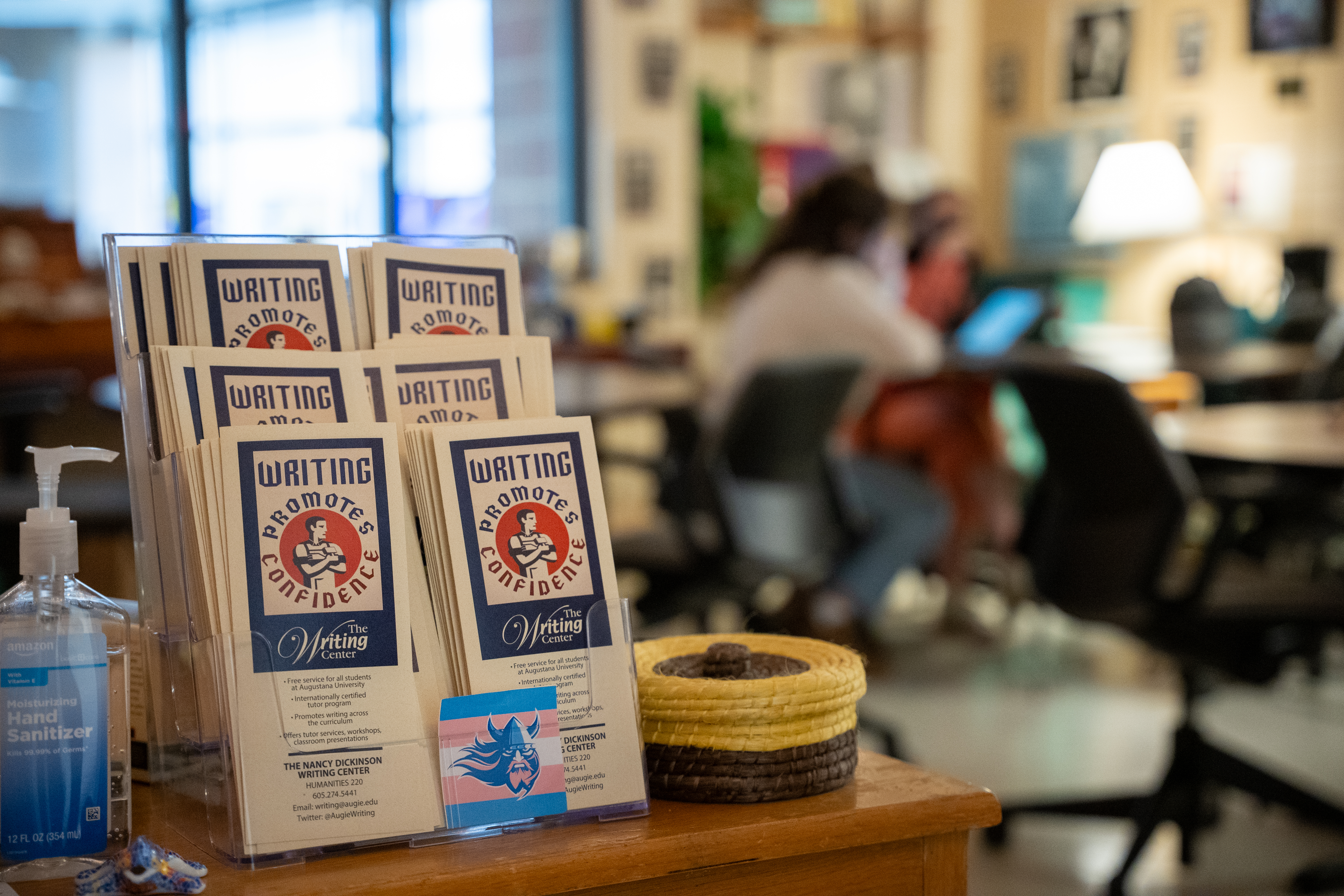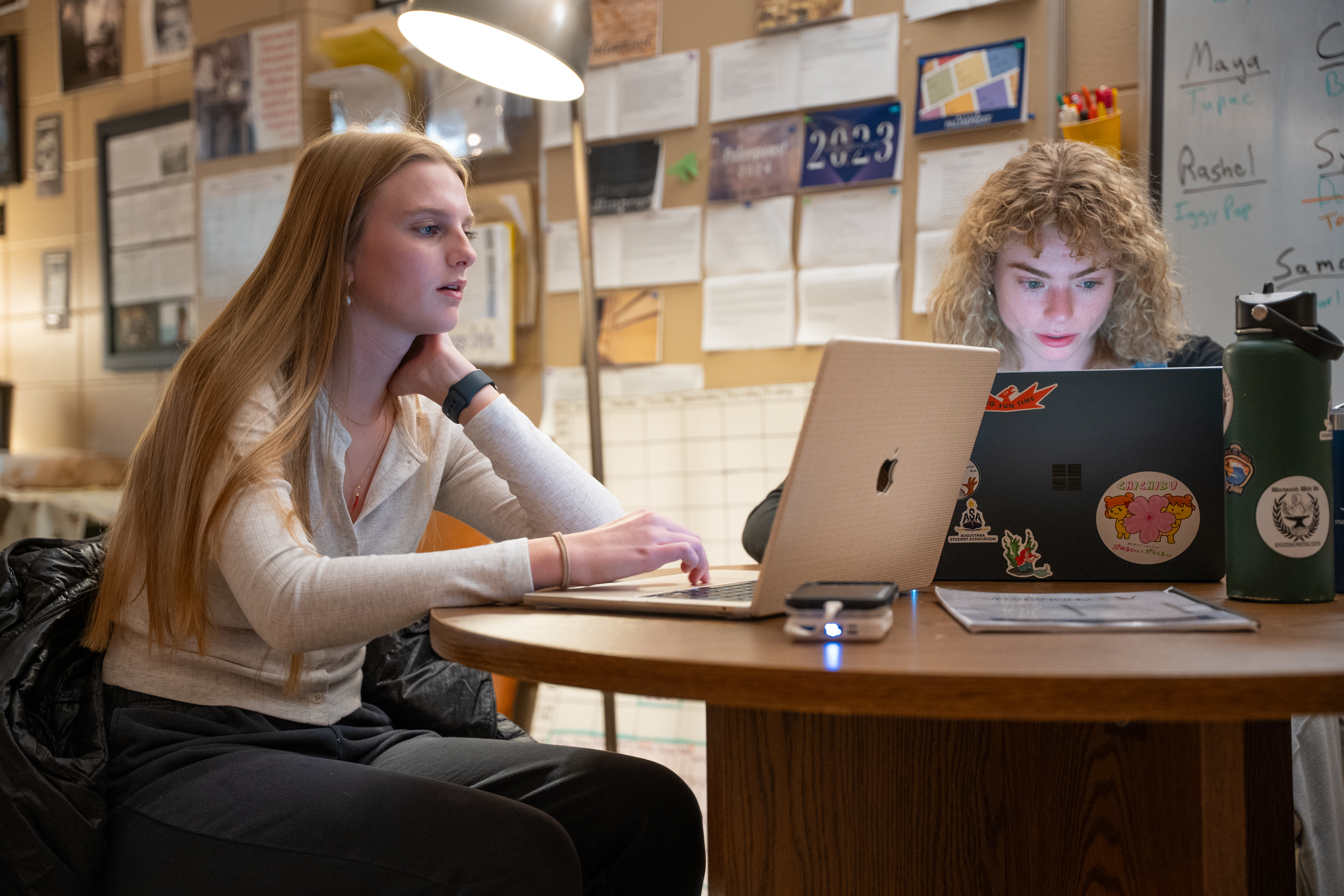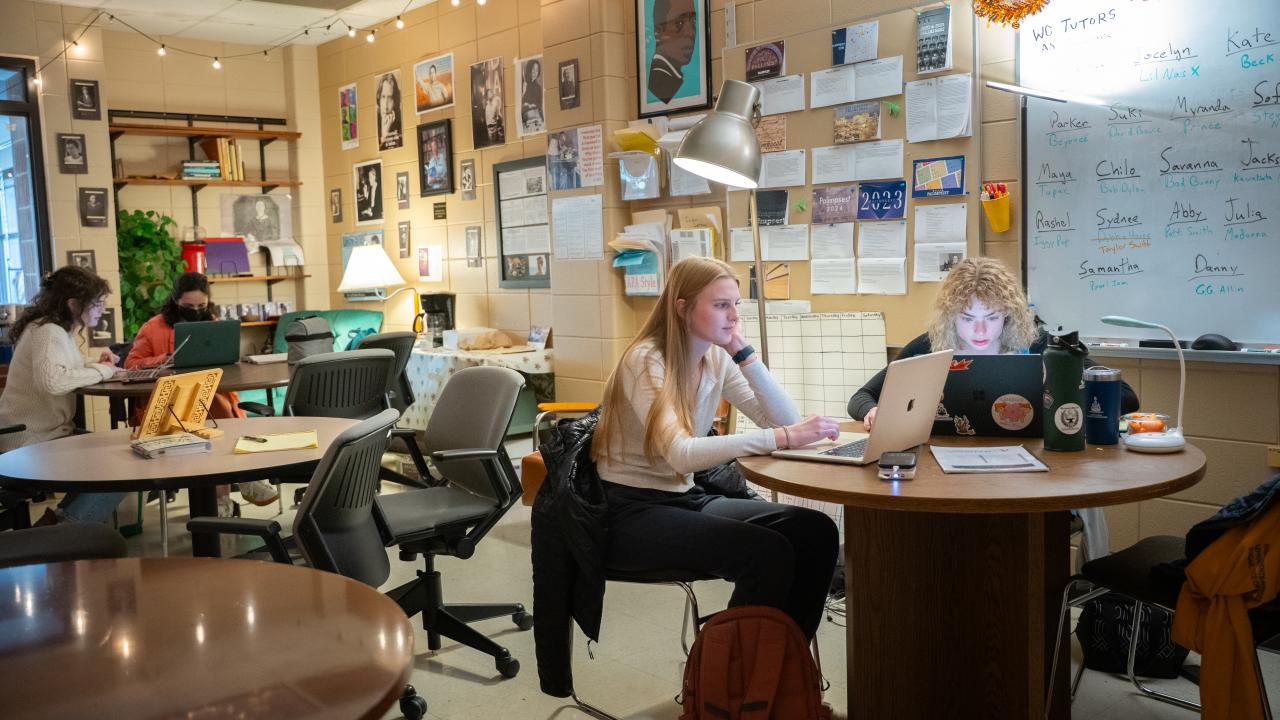As the fall semester carries on, tutors are as busy as ever in the Nancy Dickinson Writing Center on the second floor of the Fryxell Humanities Center on campus. Since being established by former instructor and director Nancy Dickinson ‘79 in 1984, the center has amassed 20 tutors — helping an average of more than 1,600 students per year.
“I think part of it is the nature of the Augustana student,” Associate Professor of English and Director of the Nancy Dickinson Writing Center Dr. Daniel Gerling said. “Most Augustana students are genuinely here to become smarter and better at what they do. I also think that a huge part of it is the tutors that I hire. I really try very hard to hire the most outstanding students that I see here — the ones who have a lot of empathy, are very welcoming, try to destigmatize the whole notion of tutoring and are kind people.”
The Writing Center is also proud to have renewed its College Learning and Reading Association (CRLA) certification — the only Augustana campus group to have this accreditation.
“(The accreditation) means that there's a very structured training system where you keep very careful records and adhere to the standards of training that they require. That's really difficult for a lot of learning centers to do,” he said.

Also working to alleviate students’ nerves are Augustana peers serving as tutors at the center.
“All of us really do try our best to work well with students,” said tutor Amina Koch ‘26, of Sioux Falls, who is triple majoring in English, Spanish and Languages, Literatures & Cultures. “Partly, it's the environment, but ultimately, I think that us as tutors, we try to destigmatize this space and the writing in general and like to make it more accessible to people.”
“People assume if you're getting help, that means something's wrong or you're bad at something, but there's nothing wrong with looking to improve in a specific field. I feel like we do a really great job at destigmatizing it,” added tutor Beatrice Anyim ‘26, a double major in quantitative economics and government & international affairs who is originally from Kenya. “Also (with) the environment of the Writing Center … I feel like it's very warm, friendly, cozy and non-intimidating. Those are two things that I think bring a lot of people in.”
Another aspect of the Writing Center that helps alleviate students’ stress about seeking help is its environment, one that Gerling has intentionally focused on for that very reason.
“We’ve been making teas and coffees for about the last decade and we just tried to make it a little bit less institutional-feeling and a little bit more cozy,” he said. “Part of the reason for that is that students tend to feel nervous when they come in here for the first time because they're in a vulnerable position. They're coming in here for help on their own writing. That can be very personal and really difficult and we want to make them feel as relaxed as possible.”
However, tutoring has not been without its challenges, especially as the use of artificial intelligence (AI) has become more prevalent in recent years.

“It's become a bigger and bigger problem,” Gerling said, of artificial intelligence (AI). “I think there are some smart ways that you can use AI for writing while maintaining academic integrity. Some students come in here and the tutors recognize that they use AI, and we remind them of that policy, that, ‘Hey, remember, you have to write this paragraph at the end explaining it.’ Some of them choose not to do that and that's difficult. Sometimes, we can tell when a student has come in with a paper that's written by AI because it's fairly easy to tell these days. We don't want to accuse a student right off the bat, but I encourage the tutors to ask questions.”
As a tutor, Koch focuses on helping students find their own voice rather than having them fully rely on AI.
“One of the things that I strive to do is give students the confidence to develop their own writing and to let themselves realize that they don't necessarily need AI to be able to communicate effectively. I just help them see just how powerful their voice can be when either they refrain from using AI or if they just use it as a tool to support their writing rather than as a substitute.”
Another challenge is getting students into the center earlier in their college career.
“That's a goal that we always have every year — to reach as many students as possible to let them know that we're here and what we do,” Gerling shared. “We want everybody to know what we do here, what kind of place this is and what kind of tutors there are to work with.”
When they do, Gerling sees the impact of the Writing Center and its services on participating students — reminding him that their current course is the right one.
“To come in here on an evening and to see the Writing Center full of tutors and tutees and that learning process happening right in front of your eyes, that's something that is truly rewarding to me,” Gerling said. “To see the conversations (that come out of that) ... to me, nothing makes me happier as an educator.”
“I feel like it's very rewarding to help someone improve their ability or improve their work, especially seeing the reaction from the student after the session saying, ‘Oh, thank you so much. I was feeling less confident in this, but now I feel more confident.’ Just helping someone grow in their writing and being a small part of it is very rewarding to me,” Anyim added.
For more information on the Nancy Dickinson Writing Center or to sign up for a tutoring session, visit augie.edu/WritingCenter.
